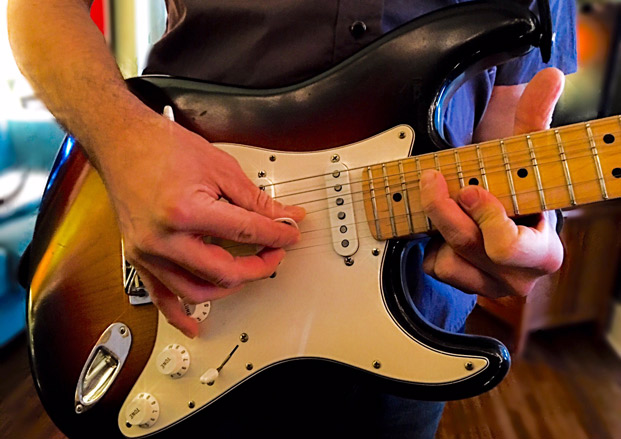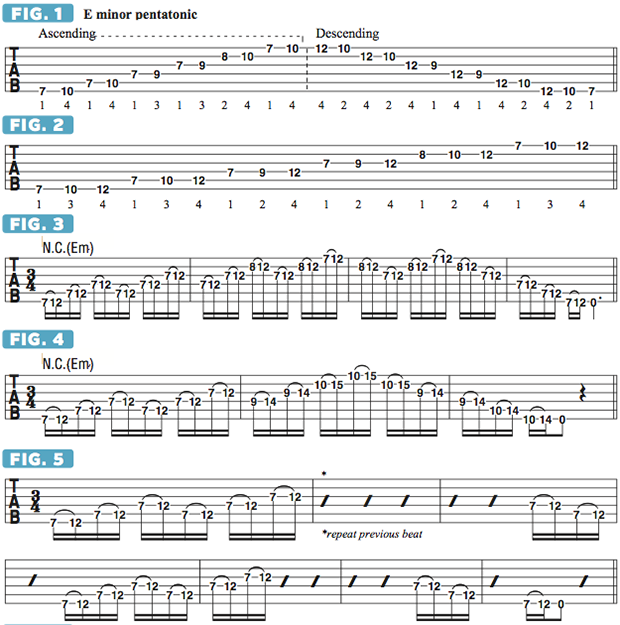Discovering New Ways to Use the Minor Pentatonic Scale
How to break away from the “bluesy” sound with which the scale is so often associated.
All the latest guitar news, interviews, lessons, reviews, deals and more, direct to your inbox!
You are now subscribed
Your newsletter sign-up was successful

I’d lIke to pick up where we left off last month by investigating some new and different ways to use minor pentatonic scales in order to break away from the “bluesy” sound with which the scale is so often associated.
A great way to discover new minor pentatonic sounds on the fretboard is to expand common “box” patterns.
As shown in FIGURE 1, E minor pentatonic (E G A B D) is played in two connecting positions: when ascending, I play the scale in seventh position; when descending, I play it in 10th position. Let’s now combine both of these forms into a single fretboard pattern, as shown in FIGURE 2.
Here, I use a wide fret-hand stretch to cover all the notes of E minor pentatonic in seventh and 10th positions, using three notes per string. A cool approach is to take this “expanded” fingering of E minor pentatonic and leave out the middle note on each string, as demonstrated in FIGURE 3.
On each string, I use hammer-ons to move from a note fretted with the index finger at the seventh fret to a note sounded on the 12th fret with the pinkie. The one exception is the B string, where I hammer-on from the eighth fret to the 12th in the same manner. Now let’s see what happens when we move this wide-stretch approach to minor pentatonic up and down the fretboard.
As shown in FIGURE 4, I begin by “cycling” the seventh-to-12th-fret hammer-ons on the bottom three strings, and then, in bars 2 and 3, I move the idea up to the ninth and 10th positions. Be sure to keep your fret hand relaxed throughout this passage, as the wide stretch can build up tension in the hand muscles. One thing I like about this pattern is that, when you really get it moving quickly, it sounds almost like a keyboard or synthesizer. A good way to build up speed is to work on moving between pairs of strings repeatedly, as I do in FIGURES 5 and 6.
Another great way to make use of this approach is to stick to just one string. In FIGURE 7, I play repeated pairs of eighth-note triplets on the high E string, combining two different scale positions in each bar, culminating with the open high E string.
All the latest guitar news, interviews, lessons, reviews, deals and more, direct to your inbox!


